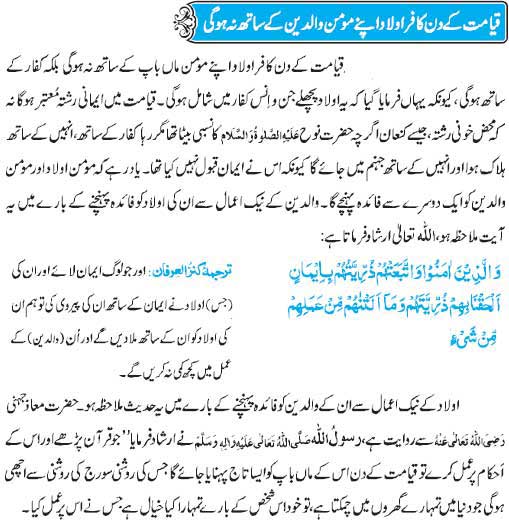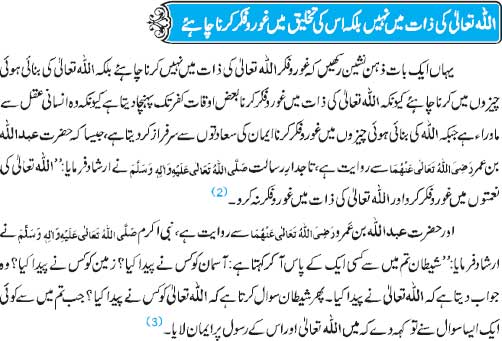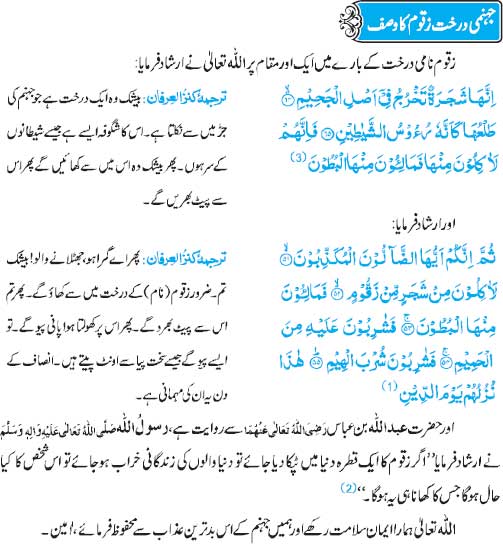
Our Lifetime Is About To Be Over Soon
GOD (Allah) does not require an accident or a reason to call us back. HE can call us any time. Many researchers have shown that any person can die anywhere without any good reason. For instance, a special nerve in our brain can burst anytime for no reason. All those who have ever been a victim of earthquakes never imagined that an earthquake was about to strike them. But most of us don’t think about it and are of the opinion that we still have enough life and will follow religion in older age. Every one of us is standing in the mouth of death ready to become her prey at any time. If this moment is our end, can we be sure that we followed the true religion in its true spirit and that our deeds are good enough to earn us Paradise (Jannah)?
This life is a test for everyone and we know very well that everyone can not get 100% justice in this life. When it is dead sure that there will be a day of judgment and there is life after death, one should check his/her faith and consult the sacred scripture of religions to find out true religion.
If Allah calls us now and asks us about our life, and what we did with it, we will surely be ashamed in front of Him. But consider another possibility. Suppose we ask Him to give us another chance (which is not possible) and He gives it to us, imagine what will we do!
Our second chance starts Now?
May God show us the right path… Aameen
Allah Taala Ki Zaat Mein Nahi Balkay Iss Ki Takhleeq Mein Ghor O Fikr

Allah Rewards Without Price
[Quran – 47:36] “The present, worldly life is nothing but a play and a pastime… If you truly believe and keep from disobedience to Him in reverence for Him and piety, He will grant you your rewards, and will not ask of you your wealth.”
[EXPLAINED by Muhammad Asad] “Although the life of this world is “but a play and a passing delight”, God does not want to deprive the believers of its rightful enjoyment: and so He expects them to sacrifice only a small part of their possessions in His cause. This passage evidently foreshadows the imposition of the obligatory annual tax called zakah (“the purifying dues”), amounting to about 2.5 percent of a Muslims’s income and property, as pointed out by most of the classical commentators in connection with the above verse (hence my interpolation). The proceeds of this tax are to be utilized in what the Qur’an describes as “the cause [lit., “way”] of God”, i.e., for the defense and propagation of the Faith and the welfare of the community; and its spiritual purpose is the “purification” of a Muslim’s possessions from the blemish of greed and selfishness. (It is to be noted that the payment of zakah was made obligatory at the very beginning of the Medina period, that is, at approximately the same time as the revelation of the present surah.)”
Dosron kay Liye Dua

The Conditions Of Prayer (Sharaaet)
The 6 conditions of Prayer are as follows:
Purity – The body and the clothes of the one offering Prayer must be pure. Further, the place of worship must be clean. One must either have a bath (if the bath is compulsory) or else just the ablution (which is a must).
Concealing the body – This is also called Satr-e-Aurat. That is to conceal/cover the necessary parts of the body. For men, this consists of the body between the navel up to and including the knees. For women, this consists of the entire body, except the face, hands, and soles of the feet. Women must hide their faces from strangers whilst not in Prayers. Wearing clothes that are so thin that body color is exposed will make the Prayer void. Similar is the case of the headscarf if the shine of the hair is revealed. In fact, wearing such clothes is prohibited even outside Prayer.
Direction towards the “Qiblah” (Kaaba) – this is called “Istiqbaal-e-Qiblah”. The face and the chest must be directed towards the “Qiblah”, whilst offering Prayer.
The Time of Prayer – proper timing is the fourth condition of Prayer. The time for Dawn Prayer starts from actual dawn and ends at the beginning of sunrise. It should be offered within this period. The time for Afternoon Prayer starts from the time the sun crosses its zenith until the shadow of any object becomes double its actual length. (The actual length means the length of a shadow when the sun is at the meridian – i.e. half distance between sunrise and zenith).
The time for Evening (Asr) Prayer starts from the time the Afternoon (Zohr) Prayer ends and finishes at sunset. The period of 20 minutes before sunset is undesirable (Makrooh), therefore one should complete the Evening Prayer before this. If the Prayer could not be offered before this due to some reason, then one should offer it during this period before sunset. The time for the Sunset (Maghrib) Prayer starts immediately after the setting of the sun and ends up on the disappearance of twilight. The period for Night (Isha) Prayer begins upon the disappearance of the twilight and lasts up to dawn. However, delaying it after midnight (half time between sunset and sunrise) is Disliked (Makrooh).
Intention (Niyah) – This is the fifth condition of Prayer. Shariah classifies “Niyah” as the firm intention within the heart. The lowest rank of such resolve is that when a person is asked about which Prayer he is offering, he should be able to answer the question promptly. If he answers after some consideration, the Prayer is void.
It is better (Mustahab) to declare the “Niyah” in a soft voice. There is no condition as to the language in which this should be said. It is better to have the intention in mind while proclaiming the “Takbeer Oola” (the first declaration of Allah’s greatness, at beginning of Prayer).
“Takbeer Tahreemah” (declaration of Allah’s greatness, which prohibits other actions except for the Prayer.) – This is the sixth condition of Prayer. This means to recite aloud “Allahu Akbar” (Allah is the Greatest) to begin the Prayer.
Prayer becomes void if the word “Allah” is pronounced as “Aaallah” or if the word “Akbar” is pronounced as “Akbaar”. Rather the person will become an infidel if the words are purposely pronounced this way whilst knowing their derogatory meanings.
Times when prayer is prohibited
- The following are the times when Prayer is regarded as Disliked (Makrooh).
- From sunrise until 20 minutes have elapsed.
- From 20 minutes before sunset, until sunset.
- Mid-morning (meridian noon) until the sun reaches the zenith.
Within these periods Prayer of any type or the Prostration (for Quran recitation, etc.) is not permitted. Except within these periods, all the lapsed Prayers and the Voluntary Prayers can be offered at any time. However, Voluntary Prayers are not permitted after dawn until sunrise and after one has offered the Evening Prayer until sunset. Both Sunnah and Nafil Prayers are prohibited during the time of the Sermon.
Gunahon Bhari Zindagi

The Rakaats in Prayer
(A single round of bodily actions within a Prayer, is called a “Rakaat”. )
Dawn (Fajr) Prayer: Total of 4 “Rakaats” – in the following order: 2 Emphasised Sunnah (Muakkadah), 2 Obligatory (Farz).
Afternoon (Zohr) Prayer: Total of 12 “Rakaats” – in the following order: 4 Emphasised Sunnah (Muakkadah), 4 Obligatory (Farz), 2 Emphasised Sunnah (Muakkadah), 2 Voluntary (Nafil).
Evening (Asr) Prayer: Total of 8 “Rakaats” – in the following order: 4 Non-Emphasised Sunnah (Ghair Muakkadah), 4 Obligatory (Farz).
Sunset (Maghrib) Prayer: Total of 7 “Rakaats” – in the following order: 3 Obligatory (Farz), 2 Emphasised Sunnah (Muakkadah), 2 Voluntary (Nafil).
Night (Isha) Prayer: Total of 17 “Rakaats” – in the following order: 4 Non-Emphasised Sunnah (Ghair Muakkadah), 4 Obligatory (Farz), 2 Emphasised Sunnah (Muakkadah), 2 Voluntary (Nafil), 3 Essential (Wajib Witr), 2 Voluntary (Nafil).
Some Sunnah Prayers are Emphasised (Muakkadah) – which Shariah has stressed upon. Leaving it without proper excuse makes one liable for censure, and abandoning it makes one a sinner, disqualified from giving witness and deserving of fire. (These should not be purposely abandoned even during travel.) Some Imaams have said that one who abandons these will be deemed astray, and a sinner although his sin is less than that of leaving an Essential (Wajib). Leaving the Sunnah habitually is close to forbidden (Haraam) and it is feared that (We seek Allah’s refuge) such a person may remain deprived of the Holy Prophet’s (PBUH) intercession. The Holy Prophet (PBUH) has proclaimed: “Whoever abandons the Sunnah will not obtain my intercession.”
Jahannami Darakht Zaqqum Ka Wasf

The Call For Prayer: Azaan
Yahya narrated it on the authority of his uncle that he had been sitting in the company of Muawiya bin Abu Sufyan (may Allah be well pleased with them) when the ‘Muazzin’ called (Muslims) to Prayer. Muawiya said: I heard the Messenger of Allah (PBUH) saying “Muazzin’s will have the longest necks on the Day of Resurrection. (They will be the more deserving of Allah’s mercy and reward) (Sunan Abu Dawood)
The Holy Prophet (PBUH) has said: “Whoever proclaims the “Azaan” for 7 years, for the sake of reward, Allah keeps him secure from the fire of hell.” (Tirmizi, Ibn Majah)
The Holy Prophet (PBUH) has said: “The one who proclaims the “Azaan” only seeking reward, is like the blood-stained martyr – and when he dies, his body will be safe from insects.” (Bahaare Shariat from Tibrani)
It is an Emphasised Sunnah (Muakkadah) to proclaim the “Azaan” for offering Obligatory Prayers in the mosque. This command is like an Essential (Wajib) in the sense that if the “Azaan’ is not proclaimed, the entire community residing there will be offenders. It is undesirable (Makrooh) to proclaim the ‘Azaan’ without ablution. The ‘Azaan’ for each Obligatory Prayer can be proclaimed after the time starts for each respective Prayer. An ‘Azaan’ proclaimed prior to its time must be repeated in its due time.
Islamic Law (Shariah) has some specific words for the ‘Azaan’ (the Call for Prayer), which are as follows:
Allahu Akbar: Allahu Akbar: Allahu Akbar : Allahu Akbar
Ash-hadu al-laa ilaaha illAllah: Ash-hadu al-laa ilaaha illAllah
Ash-hadu anna Muhammadar-Rasoolullah: Ash-hadu anna Muhammadar-Rasoolullah
Hayya alas-Salaah: Hayya alas-Salaah
Hayya alal-Falaah: Hayya alal-Falaah
Allahu Akbar: Allahu Akbar
Laa ilaaha illAllah
Allah is the Greatest, Allah is the Greatest, Allah is the Greatest, Allah is the Greatest
I bear witness that there is no God except Allah, I bear witness that there is no God except Allah
I bear witness that Mohammed is the Messenger of Allah, I bear witness that Mohammed is the Messenger of Allah
Come towards Prayer, come towards Prayer; Come towards Success, come towards Success
Allah is the Greatest, Allah is the Greatest; there is no God except Allah!!
While saying “Hayya alas-Salaah Hayya alal-Falaah” in the ‘Azaan’ or in the ‘Iqamah’, one must face right and left respectively. Upon hearing the ‘Azaan’, it is commanded to reply to it – i.e. to repeat the words which the Caller (Muazzin) is saying, except for the words ‘Hayya alas-Salaah Hayya alal-Falaah’, for which one must say “Laa hawla wa laa quwwata illaa Billah” (There is neither power nor strength, except with Allah).
In the ‘Azaan’ for the Dawn Prayer, the Caller must say the following words twice after “Hayya alas-Salaah Hayya alal-Falaah” – “AsSalaatu Khairum-minun-Naum” (Prayer is better than sleep). The response to these words is “Sadaqta wa bararta, wa bilHaqqi Nataqta” (You have confirmed the truth and you did well – and you have spoken a fact.)
While the ‘Azaan’ is being said, one must not indulge in any talk, recite Quran, etc., nor indulge in other activities. Listen to the Azaan attentively and reply to it. The same applies to the Iqamah. For the one who stays engrossed in talk while the ‘Azaan’ is being proclaimed, there is a danger of him dying an evil death. (We seek Allah’s refuge)
When the Caller proclaims “Ash-hadu anna Muhammadar-Rasoolullah”, one must respond by sending peace and blessings upon the Holy Prophet – “SallAllahu alayka yaa Rasool Allah” (Allah’s blessings be upon you, O the Messenger of Allah).
The words proclaimed to announce the beginning of the congregational Prayers (with Jamaat), are called “Iqamah’. All words are the same as in the “Azaan’, except that after the second “Hayya alal-Falaah”, the following words are said twice – “Qad QamatisSalaah” (The Prayer has been established). In response to this, one should say “AqamahAllah wa adamaha maa damatiSamawate walArd” (May Allah keep it established, and grant it permanence as long as the skies and the earth remain.)
It is undesirable (Makrooh) for a person who comes in at the time of “Iqamah” to remain standing and wait – he should sit down and stand up only when the Proclaimer (Mukabbir) has announced “Hayya alal-Falaah”. Likewise those who are already present in the mosque must stand up at this moment. The same applies to the Imaam.
If several Azaans are heard, the listener must reply to the first one, and it is better if he replies to all. The ‘Azaan’ for the Sermon (Khutbah) must not be replied to by those who pray behind the ‘Imaam’ in the congregation. (The follower is called Muqtadi).
After the Azaan, one must send blessings upon the Holy Prophet (PBUH) and then supplicate as follows:
Allahumma rabba haazihi-daawatit-taammate was-salaatil-qaaemate aate sayyedenaa Muhammadan-ilWaseelata walFadeelata wad-darajatar-rafeeata wabas-hoo maqaamam-mahmoodanil-lazee wa-attahoo warzuqnaa shafaatahoo yawm-alqiyaamate, innaka laa tukhleful-meeaaad.
(O Allah, the Lord of this perfect call and of the Prayer to be established !! Grant our leader Hazrat Mohammed, the highest point in Paradise, and Excellence, and the highest rank, and install him on the praiseworthy position which You have promised him – and grant us his intercession on the Day of Resurrection. Indeed You do not go against Your promise.)

